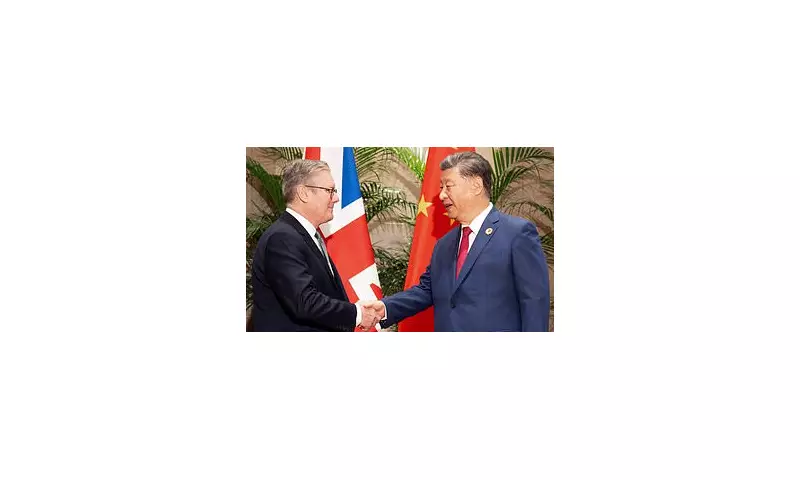
Britain stands on the precipice of a major national security crisis as covert Chinese investments in critical infrastructure create alarming vulnerabilities, according to senior intelligence officials. The warning comes amid growing concerns that Beijing is employing 'debt trap diplomacy' tactics previously seen in developing nations, now targeting Western economies.
The Silent Takeover of Britain's Backbone
Intelligence sources have revealed that Chinese state-owned and state-linked enterprises are systematically acquiring stakes in essential British infrastructure. From energy networks to telecommunications and transportation systems, these strategic investments are creating dependencies that could be exploited during geopolitical tensions.
The situation has become so concerning that GCHQ, Britain's signals intelligence agency, has issued multiple warnings about the potential for espionage and economic coercion. One senior official described the pattern as "economic warfare by another name," with long-term consequences for national sovereignty.
From Developing Nations to Westminster's Doorstep
China's 'debt trap' strategy first gained notoriety in developing countries across Africa and Asia, where massive infrastructure loans created unsustainable debt burdens. When nations struggled to repay, Beijing demanded strategic concessions including port access, military basing rights, and political alignment.
Now, intelligence assessments suggest the same playbook is being adapted for developed economies. Through sophisticated investment vehicles and corporate structures, Chinese entities are gaining influence over systems that keep Britain functioning.
The Huawei Precedent: A Warning Ignored?
The controversial involvement of Huawei in Britain's 5G network serves as a stark case study. Despite repeated security concerns, the telecommunications giant secured significant contracts before being eventually phased out due to espionage fears.
"We're seeing the same pattern across multiple sectors," explained a security analyst familiar with the intelligence. "Strategic investments are followed by gradual influence accumulation, creating leverage points that could be activated during disputes or crises."
Critical Infrastructure at Risk
- Energy Networks: Chinese investments in nuclear power and grid infrastructure
- Digital Infrastructure: Stakeholding in data centres and communications networks
- Transportation: Involvement in port operations and logistics systems
- Financial Systems: Strategic positions in banking and payment infrastructure
The complexity of modern supply chains and financial networks makes it increasingly difficult to track and regulate these investments effectively. Many deals are structured through multiple jurisdictions and shell companies, obscuring ultimate ownership and control.
A Call for Strategic Response
National security experts are urging the government to implement more robust screening mechanisms for foreign investments in critical sectors. The existing National Security and Investment Act, while a step forward, may lack the teeth needed to address the sophisticated methods being employed.
With geopolitical tensions rising and economic competition intensifying, Britain faces the delicate challenge of maintaining open markets while protecting essential national interests. The balance between economic opportunity and security vulnerability has never been more precarious.
As one intelligence veteran grimly noted: "We're building our own cage, and happily handing the keys to those who may not have our best interests at heart."





